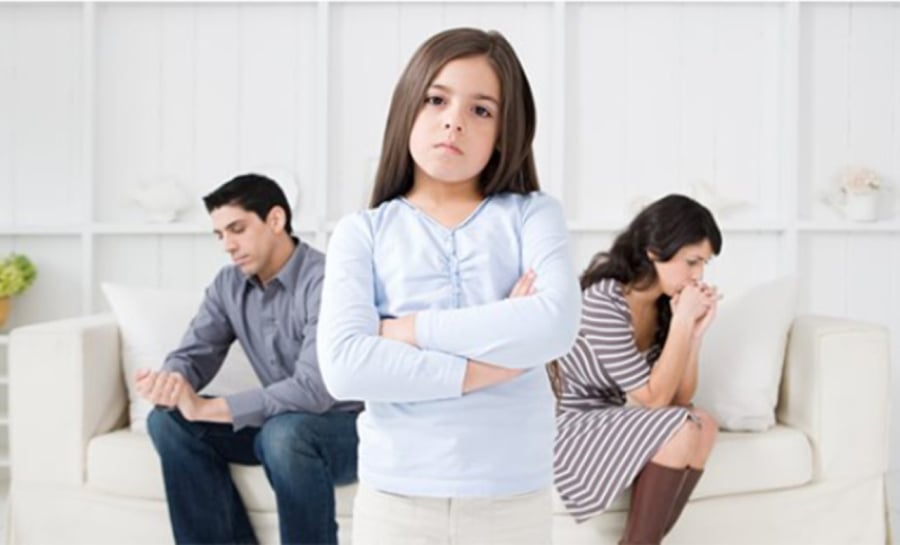It’s important to maintain a sense of balance in your daily life so that your child doesn’t feel neglected. The following tips will help your child cope better with a new life after divorce:
1. Talk to Your Child About the Divorce
As soon as you’re certain about your decision, inform your child about the divorce. This is difficult, but it’s best if both parents can be present for this conversation.
Try to keep your own emotions in check. Your child doesn’t need to know all the reasons behind the divorce, but they should be prepared for the upcoming changes in their daily life and understand that some things will no longer be the same.

Let your child know the reasons for the divorce and express your love for them… (Illustrative image)
2. Express Your Love
If you and your spouse don’t take the time to show your love and attention to your children after the divorce, they may become withdrawn and feel ashamed in front of their peers, which is not good for their future.
Let them know that you’re still there for them and that you care. Reassurance from both parents can work wonders in eliminating negative emotions such as loneliness or feelings of abandonment.
While the divorce may be difficult for your child, with your love and care, they will be able to cope with life’s situations much better.
3. Manage Your Child’s Disappointment
Your child may try to please you by saying that they’re fine and trying to hide their negative emotions, such as concealing their disappointment upon hearing the news.
However, stress can manifest in other ways, such as at school, with friends, or through changes in behavior and daily habits.
Be prepared to answer questions like: Who will I live with? Where will I study? Where will my parents live? Will I still have friends? Will I have to change schools?…
4. Help Your Child Cope
Here are some ways to help your child deal with the disappointment of their parents’ divorce:
Allow your child to express their emotions. Their behavior will give you insights into their feelings. If they seem sad, be a good listener. This will help them release their emotions instead of bottling them up or sharing them only with friends.
Offer help. Your child may not ask for it directly, but you can suggest ideas like going for a walk together or sitting down to talk.
Control the situation. Be careful about privacy when discussing divorce details, and try to maintain a natural distance from your spouse, especially in front of your child.
Don’t badmouth each other in front of your child. It’s absolutely crucial to avoid regularly blaming or speaking ill of each other within your child’s hearing. You can use text messages or emails to avoid conflict situations at home.



































